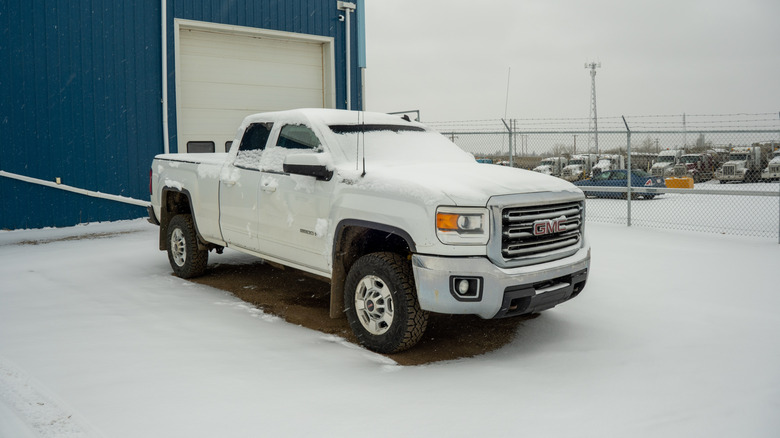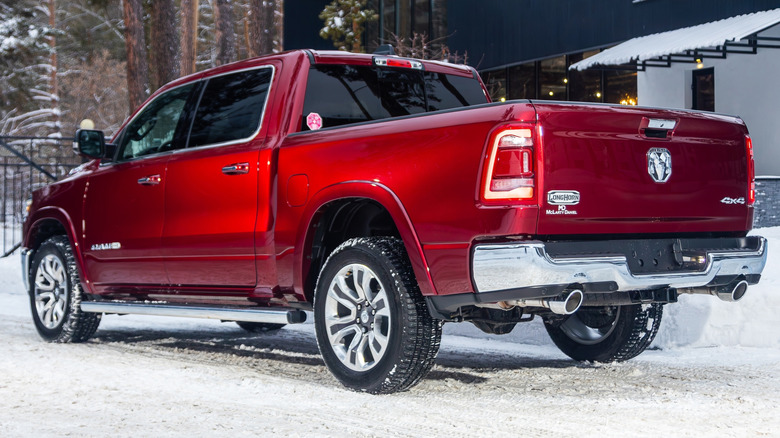Can A Cold Start Hurt A Diesel Engine? Here's What You Should Know
Besides preventing the build-up of nasty engine sludge and premature wear, protection against cold starts is one of the main reasons why you should never skip an oil change in your gasoline or diesel vehicle. A cold start is when you attempt to start a vehicle in ambient temperatures that are lower than the engine's recommended operating temperature. Car guys also define a cold start when restarting an engine after two or more hours of inactivity.
Cold starts are detrimental to diesel, gasoline, and any internal combustion engine. However, diesels are more susceptible to hard starting in cold weather due to how they operate and burn fuel to produce power. Diesel engines don't have spark plugs like a regular gasoline motor. Instead, a diesel engine relies on compression ignition, which also means diesel relies on higher temperatures to create a successful burn.
When the weather is cold, the oil and coolant will thicken, the diesel fuel will begin to gel, and even the 12V battery will become weak, making it challenging to start your diesel truck on the first attempt. Compounding the issue is dirty oil that won't flow as quickly in chilly weather, which could lead to premature wear and tear of internal parts.
So, can a cold start harm my diesel truck?
Cold starts will not damage your diesel engine, but they may induce significantly more wear and tear. In addition, the onset of winter will make any diesel harder to start: It's five times harder to start a diesel at 0°F (-17°C) than at 80°F (26°C). However, there are a few tips to consider to minimize the potential issues that may occur every time you start the diesel in the winter.
Changing the oil before the onset of wintertime is one of the best things you can do to protect the diesel engine from cold starts and hard starts. Fresh and clean diesel oil will flow more smoothly and reach internal parts sooner, offering protection during the crucial seconds of a cold start. You should also consider using lighter grade motor oil. Consult the owner's manual to determine the recommended grade of motor oil for your diesel engine during the cold winter months.
Moreover, it's a good idea to switch to winter blended fuel that resists gelling and makes it easier to combust. It's also imperative to drain the water from the fuel filter regularly, and also replace it when necessary. Meanwhile, switching from coolant to antifreeze will provide better defense for the internals and cooling system during the winter. Lastly, use an aftermarket block heater or intake heater, or activate the glow plugs (when equipped) when the mercury drops. Those heating accessories will pre-warm the engine and its fluids to help reduce friction and make it easier to start.

